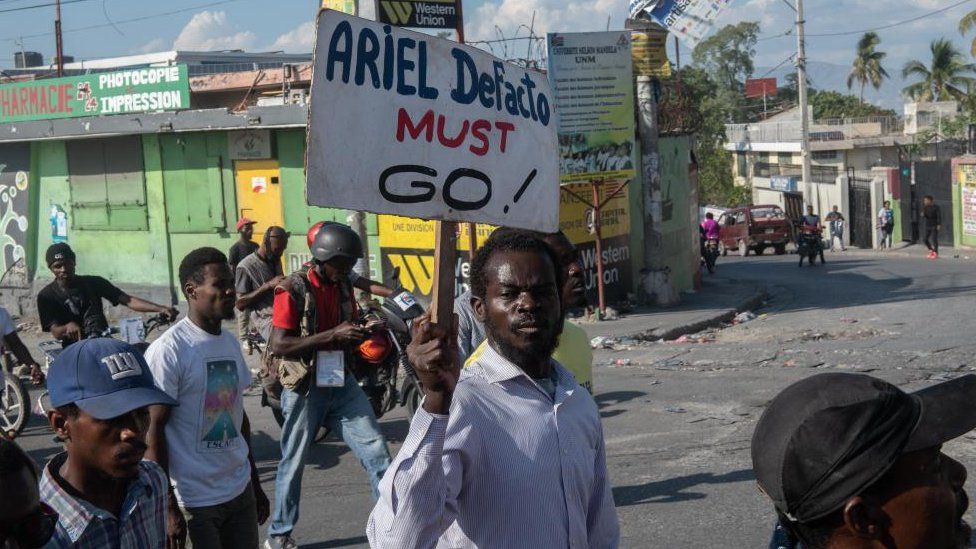
In the wake of Prime Minister Ariel Henry’s resignation under pressure from the United States, Haiti finds itself at a critical crossroads, grappling with the legacies of corruption, failed governance, and unchecked violence. Henry’s departure, while symbolically significant, leaves a vacuum in a nation already teetering on the brink of collapse, with civil society leaders questioning the roadmap to stability and democracy.
The announcement has done little to assuage the fear and uncertainty pervading the streets of Port-au-Prince, reflecting a deep-seated mistrust in a political process heavily influenced by external forces. The role of CARICOM and the United States in dictating the terms of Henry’s resignation and the formation of a transitional council underscores a perennial dilemma: the tension between Haiti’s sovereignty and the international community’s interventions.
This external meddling, albeit intended to usher in a period of transition, might inadvertently perpetuate the cycle of dependency and undermine the legitimacy of the forthcoming political process. The stipulation that participation in the transitional council is contingent upon supporting an international security mission led by Kenya illustrates this conundrum, raising concerns about whose interests are truly being served.
The reliance on foreign powers to facilitate political transitions in Haiti is not new. However, the current scenario, with its explicit conditions and the backdrop of escalating gang violence, highlights the precariousness of Haiti’s autonomy. The prospect of a multinational force, while ostensibly a measure to restore order, is fraught with historical baggage, given the consequences of previous foreign interventions.
Critics argue that the international community’s backing of an unelected Henry was a glaring misstep, contradicting the principles of democracy and self-determination. This support not only failed to address the root causes of Haiti’s turmoil but also contributed to the erosion of public trust in both the domestic and international actors involved in the crisis.
The path forward for Haiti is fraught with challenges. A genuinely Haitian-led solution appears elusive in a landscape shaped by foreign interests and internal strife. The formation of a transitional government, while necessary, must transcend mere power-sharing arrangements and address the systemic issues that have plagued Haiti for decades.
The emphasis on a rights-based approach and a departure from the governance strategies that have historically empowered armed groups is crucial. As Haiti navigates this tumultuous period, the international community must recalibrate its role, moving from a prescriptive to a supportive stance that empowers Haitian voices and fosters genuine democracy.
The situation in Haiti serves as a stark reminder of the complexities inherent in international intervention and the delicate balance between assisting a nation in crisis and respecting its right to self-determination. As Haiti strives to chart a new course, the world watches, hoping that this time, the outcome will be different.



 and then
and then